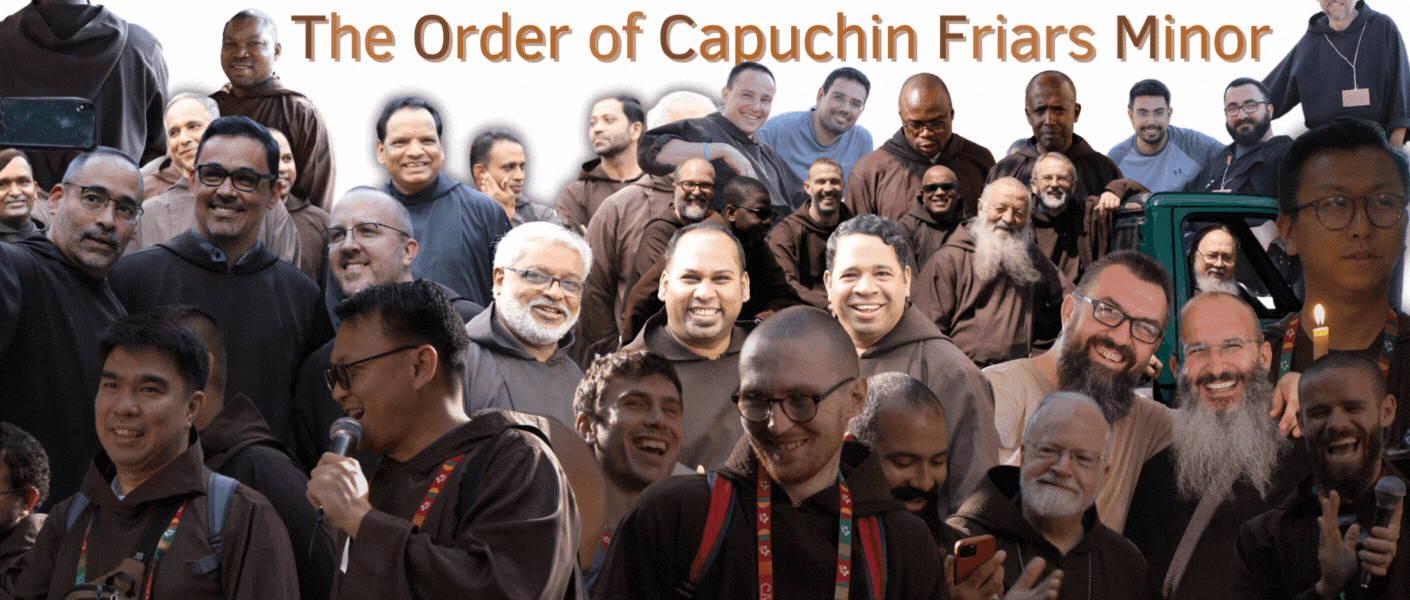Forgiveness is a caress of God
- Published in Giubileo della Misericordia
In today's liturgy there are two attitudes: an attitude of greatness before God that is expressed in humility – King Solomon – and another attitude of meanness that is described by Jesus as that of the doctors of the Law: that everything was precise, that they left the Law aside in order to observe their little traditions.
Your tradition, that of the Capuchins, is a tradition of forgiveness, of giving forgiveness. Among you there are many wonderful confessors. This is because they felt themselves to be sinners, as our Br. Cristoforo (Br. Cristoforo is one of the principal characters in Alessandro Manzoni's The Betrothed. He entered the Order after killing another man in a duel - translator). They know that they are great sinners and before the greatness of God they always pray: "Hear me, Lord, and forgive!" And because they know how to pray in this way, they know how to forgive. On the other hand, when someone forgets his need for forgiveness, little by little he forgets God, he forgets to ask forgiveness and doesn't know how to forgive. The humble person, who senses himself as a sinner, is a great giver of forgiveness in the confessional. Another, like these doctors of the Law that saw themselves as the pure, as the teachers, knows only how to condemn. I speak to you as a brother and in you I would like to speak to all confessors, especially in this Year of Mercy: the confessional is for forgiveness. And if you don't give absolution – I say hypothetically – please, don't beat anybody up! The one who comes, comes looking for comfort, forgiveness, peace in his heart. May they find a father who embraces them and says: "But God loves you very much!" And may he make this felt.
I'm sorry to say it, but a lot of people, I think that the majority of us have heard it said: "I don't go to confession anymore because one time they asked me these questions, they did this to me..." Please! You Capuchins have this special gift from the Lord: to forgive. And I ask you: don't get tired of forgiving. I'm thinking of someone I knew in another diocese, a man of administration, who then, when he finished his time in administration, as guardian, as provincial, at seventy years old he was sent to a shrine to hear confessions. And this man had a long line of people, everybody: priests, faithful, rich and poor, everyone. He was good at forgiveness. He always found the way to forgive, or at least to leave a soul with an embrace. And one time I met him and he said to me:
"Listen, you are a bishop and you can tell me, I think that I sin because I forgive too much. This scruple comes to me."
And why? I asked.
"I don't know, but I always find a way to forgive."
And what do you do, when you feel this way?
"Well, I go to the chapel, before the tabernacle, and I say: Lord, well, excuse me Lord, forgive me. I think that today I have forgiven too much. But Lord, it was you who gave me bad example!"
Be men of forgiveness, of reconciliation, of peace. There are many languages in life. The language of words, but also there are the languages of gesture. If someone comes to me in the confessional, it is because he feels something weighing on him and wants to free himself. Perhaps he doesn't know how to say it, but the gesture is this: if this person comes, it is because he would like to change, to become another person, and he says this by the gesture of approaching. It is not necessary to ask questions: but you, you... And if someone comes because in his heart he doesn't want to do it anymore. But many times people can't change because they are conditioned by their psychology, by their lives, by their situation. Ad impossibilia nemo tenetur. A broad heart, forgiveness... forgiveness is a seed, it is a caress of God. Trust in the forgiveness of God! Don't fall into Pelagianism: you have to do, this, this, this... You have this charism of being confessors. Take it up again, renew it always! And be great givers of forgiveness, because the one who doesn't know how to forgive ends up like these doctors in the Gospel: he becomes a great condemner. And who is the great accuser in the Bible? The devil. You can do the job of Jesus, who forgives, gives life, prayer, sitting there many hours, like these two saints, or you can do the job of the devil who condemns, accuses. I don't know, I cannot tell you something else, and in you I say it to all, to all – to priests who go to hear confessions. And if they don't feel up to it let them be humble and say: no no no, I celebrate Mass, I clean the floors, I do other things, but I don't hear confessions because I don't know how to do it well. Ask the Lord for the grace. The grace that I ask for each of you, for all of you, for all confessors, and also for me.

